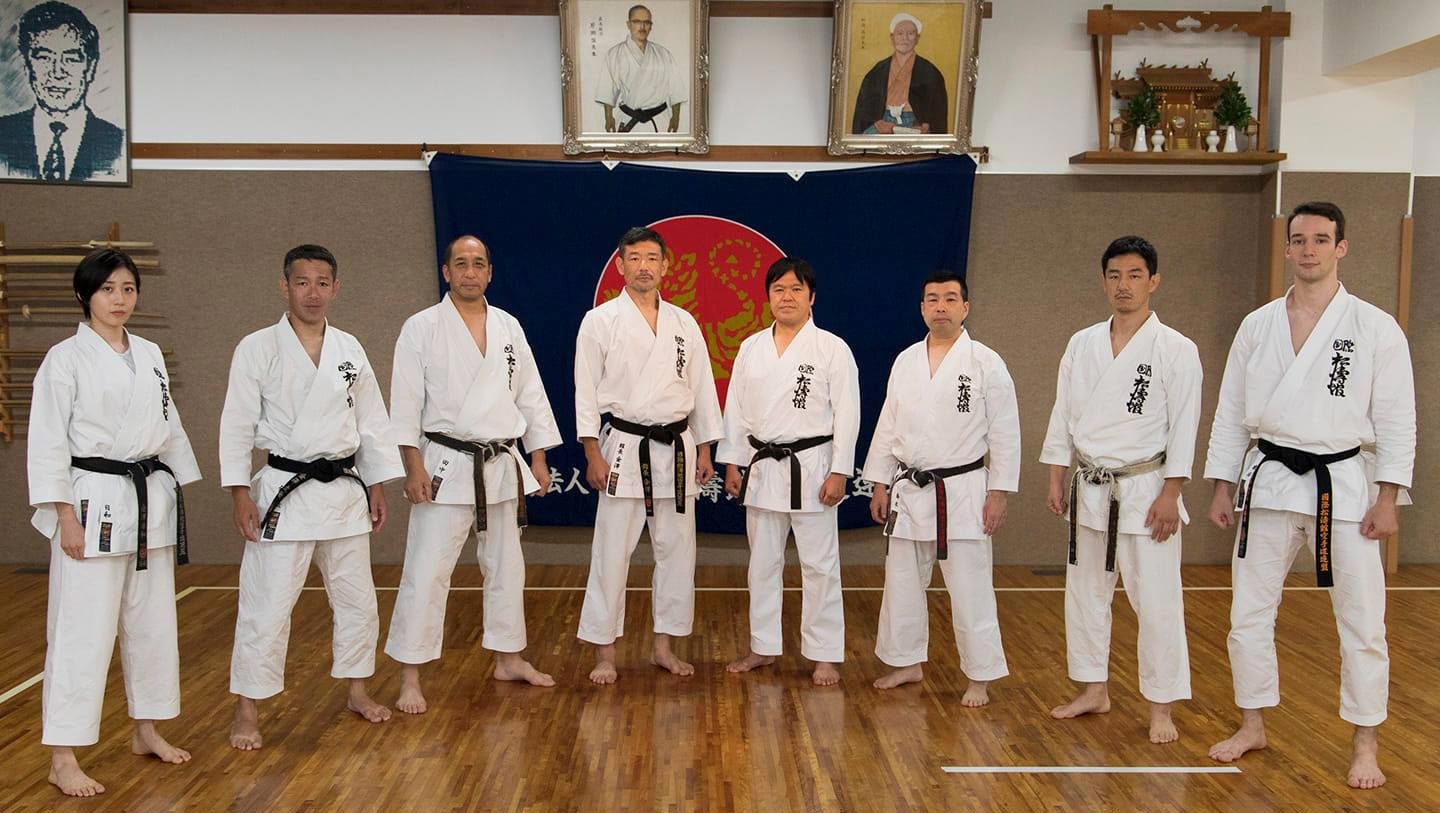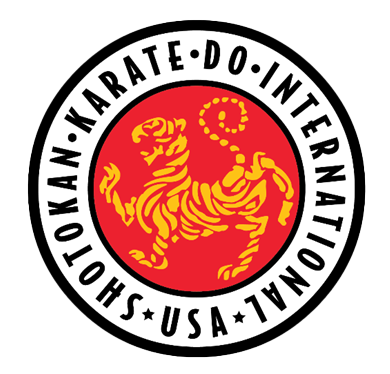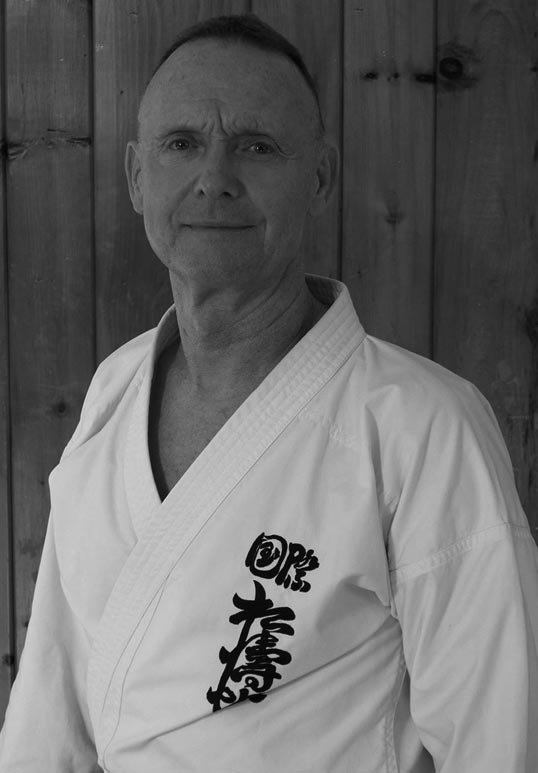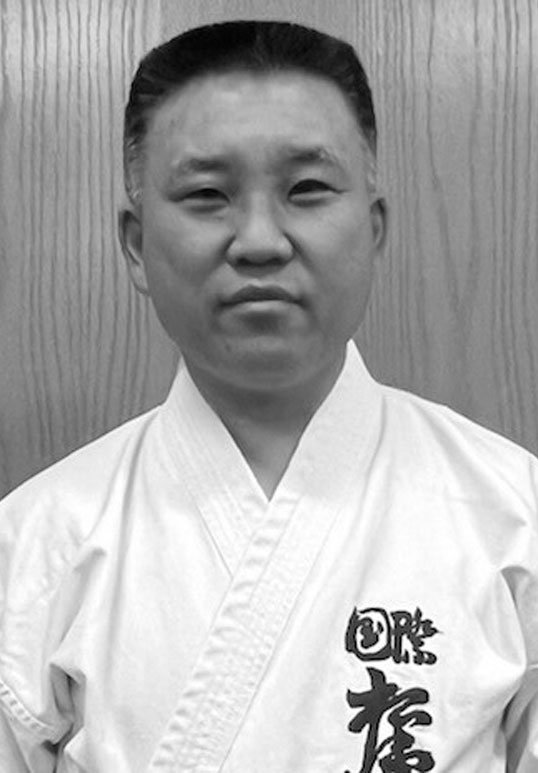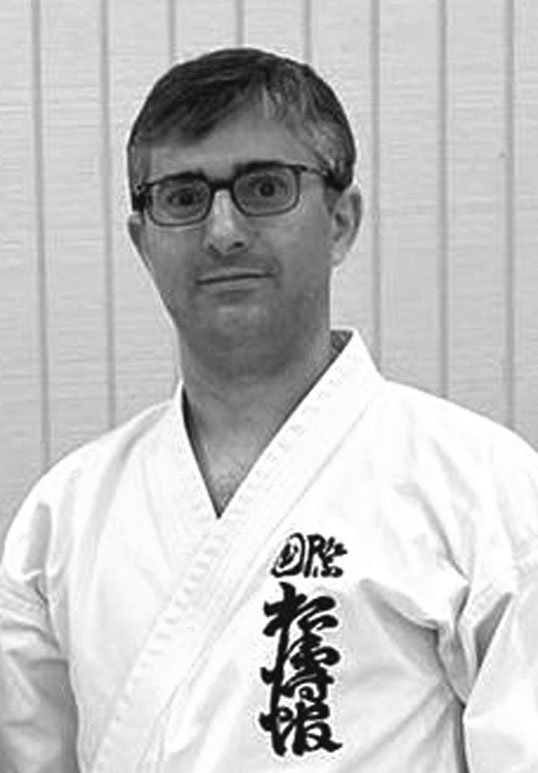About Us
SKIF-USA’s BOARD OF DIRECTORS
- D.O.B. 07.20.1950
- Southeastern Massachusetts Technological Institute – B. S. Psychology 1975
- Univ. of Central Florida – M.Ed. 1985 / M.S. Mental Health Counseling 1988
- Began karate-do training – SMTI’s University Shotokan Karate Club as an undergraduate student
- Tai Chi Chuan Training -Sifu Pui Chan – Orlando, FL 1983-1995
- Taught Shotokan Karate do & Yang Style Tai Chi Chuan – Seminole College Physical Education Dept., Sanford, FL 1983-1995.
- Operated dojos/ clubs in FL, NH, VT, CT & MA
- Presently teaching Karate-do & Tai Chi Chuan – Longmeadow, MA
- Joined SKIF 1994
- Member SKIF- USA first Steering Committee & Board of Directors
- Assistant Coach SKIF World Championships Japan 2006
- Team Coach SKIF Pan American Championships Costa Rica 2007
- Assistant Coach SKIF World Championships Greece 2009
- D.O.B. 07.20.1950
- Southeastern Massachusetts Technological Institute – B. S. Psychology 1975
- Univ. of Central Florida – M.Ed. 1985 / M.S. Mental Health Counseling 1988
- Began karate-do training – SMTI’s University Shotokan Karate Club as an undergraduate student
- Tai Chi Chuan Training -Sifu Pui Chan – Orlando, FL 1983-1995
- Taught Shotokan Karate do & Yang Style Tai Chi Chuan – Seminole College Physical Education Dept., Sanford, FL 1983-1995.
- Operated dojos/ clubs in FL, NH, VT, CT & MA
- Presently teaching Karate-do & Tai Chi Chuan – Longmeadow, MA
- Joined SKIF 1994
- Member SKIF- USA first Steering Committee & Board of Directors
- Assistant Coach SKIF World Championships Japan 2006
- Team Coach SKIF Pan American Championships Costa Rica 2007
- Assistant Coach SKIF World Championships Greece 2009
Chris has been training Shotokan Karate (traditional Japanese karate) since 1985. She achieved her first level of black belt in 1992. Over the years she has trained and tested for subsequence ranks, achieving her 6 th Dan rank in 2014.
In 2002 she became owner and Chief Instructor of Peak Performance Shotokan Karate-Do dojo located in New Brighton, MN. Her school teaches all ages of students, specializing in youth programs. Chris is also honored to be teaching preschool programs at Creative Kids Academy in the Minneapolis area and youth/adult programs for the YMCA Emma B. Howe-Coon Rapids. Chris has also served on the Shotokan Karate International Federation-USA board of directors since 2005; an organization dedicated to growing Shotokan Karate schools throughout the US.
This organization is the USA branch of Shotokan Karate International Federation located in Japan and founded by Kanazawa Soke. Chris is a certified instructor, judge and referee through SKIF. And has competed on the international stage in Kata.
Chris has been training Shotokan Karate (traditional Japanese karate) since 1985. She achieved her first level of black belt in 1992. Over the years she has trained and tested for subsequence ranks, achieving her 6 th Dan rank in 2014.
In 2002 she became owner and Chief Instructor of Peak Performance Shotokan Karate-Do dojo located in New Brighton, MN. Her school teaches all ages of students, specializing in youth programs. Chris is also honored to be teaching preschool programs at Creative Kids Academy in the Minneapolis area and youth/adult programs for the YMCA Emma B. Howe-Coon Rapids. Chris has also served on the Shotokan Karate International Federation-USA board of directors since 2005; an organization dedicated to growing Shotokan Karate schools throughout the US.
This organization is the USA branch of Shotokan Karate International Federation located in Japan and founded by Kanazawa Soke. Chris is a certified instructor, judge and referee through SKIF. And has competed on the international stage in Kata.
Rank:
6th Godan
Country of Birth:
Panama
Karate
Education
Practice Karate since 1985 and Karate Instructor since 1998
6th Dan Black Belt given by Shotokan Karate Do International Federation (SKIF) in August 2024
5th Dan Black Belt given by Shotokan Karate Do International Federation (SKIF) in March 2014
4th Dan Black Belt given by Shotokan Karate Do International Federation (SKIF) in July 2008
3 Dan Black Belt given by Shotokan Karate Do International Federation (SKIF), Nov 2004
2 Dan Black Belt given by Shotokan Karate Do International Federation (SKIF), Sept 2001
1 Dan Black Belt given by Asociacion Universitaria de Karate Do Panama, Dec 1997.
Trained with:
Sensei. Arnoldo R Cohen (Asociación Univesitaria de Karate-Do SKIF Panama),
Shihan Leonel Worrell (R.I.P) (Panamá),
Shihan. Marcos Moron (R.I.P) (SKIF Peru),
Sensei Francisco Estévez (SKIF Nicaragua),
Hanshi. Masataka Mori (JKA NY),
Hanshi Namiki Toshiaki (JKSF),
Hanshi Wei Yui Ji (Costa Rica),
Kancho Masaya Kohama (Shobukan Japon),
Kancho Hirokazu Kanazawa, Shihan Manabu Murakami, Shinji Tanaka, Daizo Kanazawa and Fumitoshi Kanazawa (SKIF HQ Japon).
Sensei Shadi Barazi and Karayash Daylami (SKIF USA)
Tournaments
SKIF Pan American Championship 2012 at Dominic Replublic
SKIF World Championship Greece 2009
SKIF USA 2008 National and Open Tournament in Miami – 2 Place in Kata
Shobukan Karate Do Tournament 2008, Killeen Tx, 2 Place in Kata
SKIF Pan American Championship 2007 at San Jose Costa Rica
Karate Do Tournament in NY 2000, 2 Place in Kata
Karate Do Tournament in Pennsylvania 2000, 1 Place in Kumite and Kata
Karate Do Tournament in San Jose Costa Rica, 1 Place in Kata and 1 Place Team Kumite
Participated in several local tournament in Panama winning 1, 2 and 3 places in Kata an Kumite
Seminar Given:
Self Defense training at University of Panama 2007
Interests
Director and Instructor “Asociación Universitaria de Karate – Do Panamá” in Panama City, since 1997
Director – Representative “Shotokan Karate – Do International Federation – Panama” affiliated to Japan, since 1999
Director “SKIF USA” , since 2010
Life
Language:
English, Spanish and Chinese (Cantonese)
Education:
MBA in International Business and Finance at University of St Thomas,
MBA in Marketing at Universidad Latina de Ciencias y Tecnologia (Panama),
Bachelor Degree in Finance at Universidad Santa Maria la Antigua (Panama).
Rank:
6th Godan
Country of Birth:
Panama
Karate
Education
Practice Karate since 1985 and Karate Instructor since 1998
6th Dan Black Belt given by Shotokan Karate Do International Federation (SKIF) in August 2024
5th Dan Black Belt given by Shotokan Karate Do International Federation (SKIF) in March 2014
4th Dan Black Belt given by Shotokan Karate Do International Federation (SKIF) in July 2008
3 Dan Black Belt given by Shotokan Karate Do International Federation (SKIF), Nov 2004
2 Dan Black Belt given by Shotokan Karate Do International Federation (SKIF), Sept 2001
1 Dan Black Belt given by Asociacion Universitaria de Karate Do Panama, Dec 1997.
Trained with:
Sensei. Arnoldo R Cohen (Asociación Univesitaria de Karate-Do SKIF Panama),
Shihan Leonel Worrell (R.I.P) (Panamá),
Shihan. Marcos Moron (R.I.P) (SKIF Peru),
Sensei Francisco Estévez (SKIF Nicaragua),
Hanshi. Masataka Mori (JKA NY),
Hanshi Namiki Toshiaki (JKSF),
Hanshi Wei Yui Ji (Costa Rica),
Kancho Masaya Kohama (Shobukan Japon),
Kancho Hirokazu Kanazawa, Shihan Manabu Murakami, Shinji Tanaka, Daizo Kanazawa and Fumitoshi Kanazawa (SKIF HQ Japon).
Sensei Shadi Barazi and Karayash Daylami (SKIF USA)
Tournaments
SKIF Pan American Championship 2012 at Dominic Replublic
SKIF World Championship Greece 2009
SKIF USA 2008 National and Open Tournament in Miami – 2 Place in Kata
Shobukan Karate Do Tournament 2008, Killeen Tx, 2 Place in Kata
SKIF Pan American Championship 2007 at San Jose Costa Rica
Karate Do Tournament in NY 2000, 2 Place in Kata
Karate Do Tournament in Pennsylvania 2000, 1 Place in Kumite and Kata
Karate Do Tournament in San Jose Costa Rica, 1 Place in Kata and 1 Place Team Kumite
Participated in several local tournament in Panama winning 1, 2 and 3 places in Kata an Kumite
Seminar Given:
Self Defense training at University of Panama 2007
Interests
Director and Instructor “Asociación Universitaria de Karate – Do Panamá” in Panama City, since 1997
Director – Representative “Shotokan Karate – Do International Federation – Panama” affiliated to Japan, since 1999
Director “SKIF USA” , since 2010
Life
Language:
English, Spanish and Chinese (Cantonese)
Education:
MBA in International Business and Finance at University of St Thomas,
MBA in Marketing at Universidad Latina de Ciencias y Tecnologia (Panama),
Bachelor Degree in Finance at Universidad Santa Maria la Antigua (Panama).
Penny began training under Fujishima Hanshi in 1989 and helped organize the first and second SKIF international seminars held at California State University, Northridge. She was promoted to shodan by Soke in Tokyo following the 5th SKIF World Championship, Yokohama.
She has participated in seminars of Soke, Kancho, and Fujishima Hanshi as well as placing first in kata, masters division, at the 9th SKIF World Championship, Tokyo, and 10th SKIF World Championship, Athens.
She was promoted to 5th dan by Kanazawa Kancho in 2018.
A teacher for 30 years in Los Angeles Unified School District, Penny has managed the CSUN Martial Arts Center, the CSUN Karate Club, and California Karate Association as administrative assistant to Fujishima Hanshi.
She has served on the board of SKIF-USA as Treasurer since 2016.
Penny began training under Fujishima Hanshi in 1989 and helped organize the first and second SKIF international seminars held at California State University, Northridge. She was promoted to shodan by Soke in Tokyo following the 5th SKIF World Championship, Yokohama.
She has participated in seminars of Soke, Kancho, and Fujishima Hanshi as well as placing first in kata, masters division, at the 9th SKIF World Championship, Tokyo, and 10th SKIF World Championship, Athens.
She was promoted to 5th dan by Kanazawa Kancho in 2018.
A teacher for 30 years in Los Angeles Unified School District, Penny has managed the CSUN Martial Arts Center, the CSUN Karate Club, and California Karate Association as administrative assistant to Fujishima Hanshi.
She has served on the board of SKIF-USA as Treasurer since 2016.
Bio of Sensei Manfred Nagel 7 th DAN Shotokan Karate.
SKIF Windward Oahu Foundation Kaneohe Hawaii.
Sensei Manfred Nagel is the Chief Instructor of the Windward Oahu Foundation. Classes are held at the Kaneohe Elementary School on Tuesdays from 7:00 pm to 8:30 pm all Students and Fridays from 6:00 pm till 7: 00 pm Beginners and from 7:15 pm to 8:30 pm Advanced Students.
Nagel is Vice-President of Print Production at Electric Pencil a Commercial Print shop in Honolulu.
Sensei Nagel is a Native of Germany and relocated to Hawaii in 1985. He started Karate in 1967 back in his Home Town of Schwaebisch Hall www.sha-karate.de when Karate was little known in Germany. Over the span of his Karate years Sensei Nagel participated in many Karate Tournaments, National and International in Kumite and Kata, placing always in the top five in National Tournaments. In 1974 he placed third at the European Championship held in the Deutschland Halle in Berlin Germany.
He always traveled to Seminars held by Kase Sensei, Shirai Sensei, Kanazawa Soke, Asai Sensei and once Nakayama Sensei when they visit Germany.
It is the goal of Sensei Nagel to introduce Karate to as many people as possible because it is the ultimate exercise to any person “young” or “old”, Male or Female. Besides profiting from a good workout Karate also gives you the opportunity to defend yourself in the wake of on emergency. It also teaches you compassion, respect and discipline for yourself and your fellow humans. Nagel says, everything Karate teaches you, can be applied to the day to day life and help to master the many challenges we face today.
Since his relocation to Hawaii Nagel practice Karate under the watchful eyes of Takemori Sensei 9 th DAN, Kiyuna Sensei 8 th DAN, Fong Sensei 8 th DAN and Nishimura Sensei 7 th DAN. In 2018 Nagel tested successfully for 7 th DAN under Kanzcho Kanazawa in Honolulu, Hawaii.
In Germany Nagel was a member of the German Karate Federation (DKV) under President Roland Hantzsche. info@karate.de – www.karate.de
He had the A-License for graduating Students up to 4 th DAN and was Kumite and Kata Referee on a National Level.
Ask what is your favored technique or Kata Nagel says he likes Mae geri and Hangetsu Kata but says all techniques and all Kata are equally important and need to be practiced all the time to get better in speed and technique. Sometimes the smallest improvement can make a big difference.
Bio of Sensei Manfred Nagel 7 th DAN Shotokan Karate.
SKIF Windward Oahu Foundation Kaneohe Hawaii.
Sensei Manfred Nagel is the Chief Instructor of the Windward Oahu Foundation. Classes are held at the Kaneohe Elementary School on Tuesdays from 7:00 pm to 8:30 pm all Students and Fridays from 6:00 pm till 7: 00 pm Beginners and from 7:15 pm to 8:30 pm Advanced Students.
Nagel is Vice-President of Print Production at Electric Pencil a Commercial Print shop in Honolulu.
Sensei Nagel is a Native of Germany and relocated to Hawaii in 1985. He started Karate in 1967 back in his Home Town of Schwaebisch Hall www.sha-karate.de when Karate was little known in Germany. Over the span of his Karate years Sensei Nagel participated in many Karate Tournaments, National and International in Kumite and Kata, placing always in the top five in National Tournaments. In 1974 he placed third at the European Championship held in the Deutschland Halle in Berlin Germany.
He always traveled to Seminars held by Kase Sensei, Shirai Sensei, Kanazawa Soke, Asai Sensei and once Nakayama Sensei when they visit Germany.
It is the goal of Sensei Nagel to introduce Karate to as many people as possible because it is the ultimate exercise to any person “young” or “old”, Male or Female. Besides profiting from a good workout Karate also gives you the opportunity to defend yourself in the wake of on emergency. It also teaches you compassion, respect and discipline for yourself and your fellow humans. Nagel says, everything Karate teaches you, can be applied to the day to day life and help to master the many challenges we face today.
Since his relocation to Hawaii Nagel practice Karate under the watchful eyes of Takemori Sensei 9 th DAN, Kiyuna Sensei 8 th DAN, Fong Sensei 8 th DAN and Nishimura Sensei 7 th DAN. In 2018 Nagel tested successfully for 7 th DAN under Kanzcho Kanazawa in Honolulu, Hawaii.
In Germany Nagel was a member of the German Karate Federation (DKV) under President Roland Hantzsche. info@karate.de – www.karate.de
He had the A-License for graduating Students up to 4 th DAN and was Kumite and Kata Referee on a National Level.
Ask what is your favored technique or Kata Nagel says he likes Mae geri and Hangetsu Kata but says all techniques and all Kata are equally important and need to be practiced all the time to get better in speed and technique. Sometimes the smallest improvement can make a big difference.
SKIF-USA’s MISSION
- To instruct and promote the growth of karate-do;
- To promote good physical training for long life;
- To teach correct karate spirit and karate technique;
- To promote harmonious relationships with all karate practitioners (“karateka”); and
- To avoid the single-minded sport purpose.
To carry out this mission, SKIF-USA provides technical and organizational support for its members, organizes training seminars each year with Master Kanazawa and other senior SKIF instructors from Japan, the United States and other countries; sponsors karate tournaments and other events; selects and sponsors a U.S. team every three years to compete in the SKIF world tournaments; publishes a regular newsletter; maintains an internet website with information on SKIF events; sells SKIF and SKIF-USA merchandise; and provides periodic updates on items of interest to its members. In addition to its board of directors, SKIF-USA has an experienced technical committee, made up of the board of directors and other high-ranking SKIF instructors from the United States qualified to teach seminars on the SKIF system for members and prospective members.
SKIF, itself, is based in Tokyo, Japan, and is headed by Master Hirokazu Kanazawa, a tenth (10th) degree black belt (“dan”) and by a board of directors. SKIF was founded by Master Kanazawa in 1977 and it is now the largest Shotokan-style karate educational organization in the world, with branches in over 90 countries.
Master Kanazawa is one of the most revered karate instructors in the world, and he is widely considered Shotokan karate’s finest technician. He was a direct student of Shotokan karate founder, Master Gichin Funakoshi. Although he has a reputation for superb karate technique, Master Kanazawa is also highly respected and admired for his fine character and his ability to pass on the spiritual and moral essence of karate-do to his students of all ages and, particularly, to children. Master Kanazawa has also authored numerous Karate training books and produced several highly acclaimed training videos and DVDs. As such, he is a very popular karate instructor and constantly travels throughout the world to provide instruction to his students.
When Master Kanazawa formed the SKIF in 1977 he established a unique system of teaching Shotokan karate-do. The “SKIF system” is a well organized and structured system of training that is both scientific and spiritual. On the spiritual side, the following karate training precepts (“dojo-kun”), passed down from Master Funakoshi, are very important and must be followed by all members of SKIF:
- To strive for perfection of character;
- To defend the paths of truth;
- To foster the spirit of effort;
- To honor the principles of etiquette; and
- To guard against impetuous courage (maintain humility and self-control).
The SKIF system is rooted in tradition but is not bound by the limitations of traditional Shotokan karate training. For example, while the SKIF system includes all of the traditional 26 Shotokan forms (“kata”), it also currently includes four kata from other styles chosen by Master Kanazawa to complement traditional Shotokan karate training. The four additional kata include Master Kanazawa’s interpretations of Seipai (from Goju-ryu), Seienchin (from Shito-ryu), Gankaku-Sho (from Shorin-ryu), and Niju Hachi-Ho (from Tomari-te and White Crane style wushu or gung-fu). For all of the kata, the SKIF system includes standardized movements, timing, and practical applications (“bunkai”).
The SKIF system also includes a unique, comprehensive, and step-by-step approach to developing efficient and highly effective basic karate techniques (“kihon”) and combinations, together with special breathing exercises, stretching, and warm-up exercises for developing and maintaining flexibility, strength and good health throughout one’s life. Although the SKIF system is appropriate for people of all ages, it is particularly good for children. This is because the training is conducted in a safe and rewarding atmosphere, and follows a step-by-step approach which emphasizes correct breathing, posture, etiquette, mutual respect, and mental concentration.
The SKIF system includes a comprehensive approach to karate sparring (“kumite”) and the application of karate techniques in self-defense. The system is designed to allow the karateka to progress from the most basic forms of prearranged five-step (“gohon”) and three-step (“sanbon”) kumite, emphasizing distance and timing, through the intermediate one-step (“kihon-ippon”) kumite, and on to the advanced semi-free (“jyu-ippon”) kumite and free sparring (“jyu-kumite”). In addition, the SKIF system includes self-defense applications against multiple opponents, as in kata, incorporating proper distance, timing, strategy, advanced techniques, focus (“kime”), proper targeting, and recovery.
The SKIF system also emphasizes and teaches traditional etiquette, strong moral principles, respect for others, and the promotion of good-will and harmony among all karateka, and all people, of the world. This is one reason SKIF members throughout the world consider themselves to be pat of the larger “SKIF family.” It is also why the SKIF system appeals to many children and their parents.
Finally, the SKIF provides for internationally recognized and respected grading and certifications of SKIF members at all levels of experience from the lowest junior grades (“kyu” or non-black belt grades) to the highest dan grades. All dan grades must be registered at SKIF General Headquarters in Tokyo, Japan, and once registered such grades are universally recognized by SKIF affiliates and many other traditional karate organizations around the world. The SKIF also provides opportunities for qualified individuals to achieve recognition and licensure as certified SKIF instructors, grading examiners, and referees for SKIF karate tournaments. For advanced dan grades, there is also the opportunity to achieve the traditional honorary titles of Renshi, Kyoshi and Hanshi.
SKIF-USA’s MISSION
Shotokan karate is the most popular style of traditional Japanese karate. Karate means “empty hand” in Japanese. Karate-do means “empty hand way.” The term “empty” is used in the same context as it is in Zen meditation, meaning that the mind of the karateka is in a reflective and clear state and thus free of fear and distraction. As such, through proper training the skilled karateka learns to react with a clear mind and without fear or hesitation in a self-defense or other stressful situation.
Karate was introduced to mainland Japan from Okinawa in 1922 by Master Gichin Funakoshi. Master Funakoshi had studied karate as a young man while living in Okinawa and was a college professor.
Today, karate-do is practiced as a martial art, sport, and proven method of self defense. Like other Japanese martial arts (“budo”), the ultimate aim of karate-do is the perfection of the character of its participants. Through training, karateka learn self-control, mental and physical self-discipline, and the development of highly effective self-defense and fighting techniques. As such, karate training can be an excellent means of attaining and maintaining physical and emotional fitness and self-discipline. Traditional karate training involves basic training (“kihon”), forms (“kata”), and sparring (“kumite”).
Japanese karate-do differs from Korean tae-kwon-do, Chinese wushu or kung-fu, and other martial arts because karate techniques are uniquely focused. This requires them to be performed with full mental concentration, proper speed, power, coordination, breathing, and body connection. A karate technique that is properly focused will have the practitioner’s entire body and mind behind it and it will have great force and effect on the target or opponent if contact is made. Karate techniques include punches, strikes, blocks, kicks, sweeps, throws, joint locks, jumps, etc. Karate competition is popular with many karateka and a number of karate organizations sponsor tournaments. In traditional karate tournaments, however, contact to the face and head is prohibited in kumite matches and all techniques must be properly controlled.
It generally takes three (3) to five (5) years of regular training under a qualified instructor to reach the level of first (1st) degree black belt (“dan”) in traditional Shotokan karate under the SKIF system. At that point, the karateka should have mastered the basics of karate and be ready to begin training at a more advanced level. However, under the SKIF system, karate training is considered a lifelong endeavor for those who wish to keep training. Thus, a practitioner can continue to train throughout his or her life and continue to develop skill, character, self-awareness, and understanding. As such, the first dan is really only a new beginning, and the serious practitioner may go well beyond that level and become a teacher or “sensei” after sufficient training and experience.
We train with the spirit of a legend
Hirokazu Kanazawa (May 1931 - Dec 2019)
